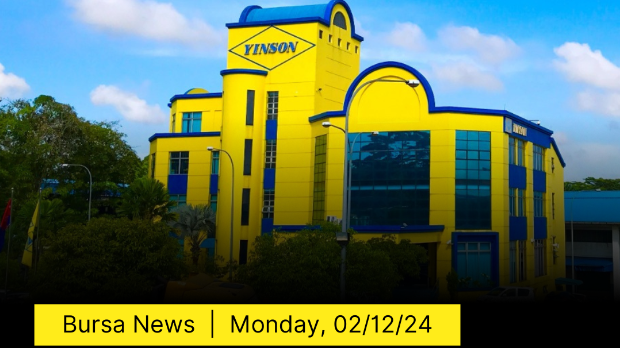Padini Holdings - Rising Costs Weave Into Profits
PADINI's 1QFY25 results fell short of expectations, with core net profit falling by 22% YoY due to higher labour costs, along with increased depreciation from additional outlets. While the near- term outlook for the apparel retail sector remains challenging, the upcoming salary hike for civil servants in Dec 2024 could provide some relief by partially restoring consumer purchasing power.
However, we are concerned over its ability to pass on rising costs. Hence, we cut our FY25-26F earnings forecasts by 21-16% and reduce our TP by 7% to RM3.35 (from RM3.60) based on a blended CY25F EPS (previously FY25F EPS) with an unchanged PER of 15x. Reiterate MARKET PERFORM.
Below expectations. Its 1QFY25 core net profit of RM20.7m (after excluding RM9m net forex loss) missed expectations at only 13% of our full-year forecast and 12% of the full-year consensus estimate; even considering seasonality, 1Q has typically contributed about 18% of full-year earnings in past years. The key variance against our forecast largely came from higher-than-expected operating costs, particularly labour costs.
Despite the lower earnings, it declared an interim dividend of 2.5 sen, which is on track to meet our full-year dividend forecast of 11.5 sen.
YoY, its 1QFY25 top line inched up 1%, fuelled by greater sales volume from a larger number of outlets. However, its core net profit, after excluding RM9m net forex loss, plunged 22% primarily due to rising operating expenses, particular labour costs and increased depreciation from the addition of new outlets. We reckon the net forex loss could be due to raw materials procured earlier in the year at less favourable MYR rates.
QoQ, its 1QFY25 revenue declined 14% largely attributed to the absence of major festive events such as Hari Raya and the school holiday shopping period during this quarter. Its bottom line fell by a steeper 22%, owing to elevated selling and distribution costs, including higher salaries.
Outlook. The near-term outlook for the apparel retail sector remains challenging with persistently high inflation dampening consumer sentiment and spending. On a brighter note, the progressive salary increase for civil servants effective Dec 2024 should at least partially restore consumer purchasing power. While we understand PADINI has no immediate plans to raise product prices, the company hopes to defend its margins through effective inventory management and store optimisation. For FY25, PADINI plans to open four new stores, close down one underperforming location, and refurbish nine existing stores in Malaysia. These initiatives aim to mitigate the impact of volatile raw material prices and sustained pressures from high labour and distribution costs.
Forecasts. We trim our FY25F and FY26F earnings forecasts by 21% and 16%, respectively, as we factor in higher labour costs as well as increased selling and distribution expenses.
Valuations. Consequently, we lower our TP by 7% to RM3.35 (from RM3.60) based on a blended CY25F EPS (previously FY25F EPS) with an unchanged PER of 15x, which aligns with the departmental store/apparel sector's average historical forward PER. Our TP will be adjusted to RM2.25 following the group's one-for-two bonus issue, which received shareholders' approval at the recent AGM. The bonus shares are expected to be listed on 19 Dec 2024. There is no adjustment to our TP based on ESG given a 3-star rating as appraised by us (see Page 4).
Investment case. We like PADINI for: (i) its position in offering value-for-money apparel, which resonates well with budget- conscious consumers, (ii) its potential to benefit from the civil servants' pay rise, and (iii) its strong net cash position, which enables efficient inventory management. However, we are concerned over its inability to pass on higher costs in the near term. Maintain MARKET PERFORM.
Risks to our call include: (i) competition from both existing and new players, (ii) sustained high inflation that eventually erodes consumers' spending power, stalling consumption including apparel and footwear, and (iii) rising textile prices.
Source: Kenanga Research - 2 Dec 2024






















